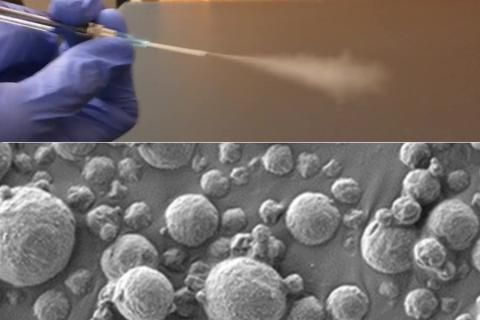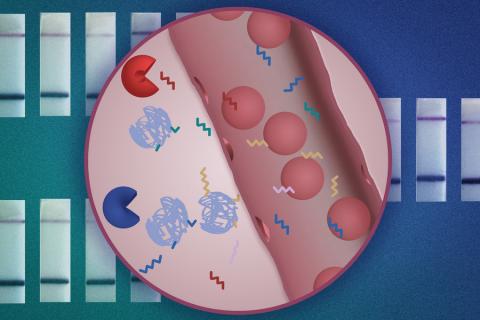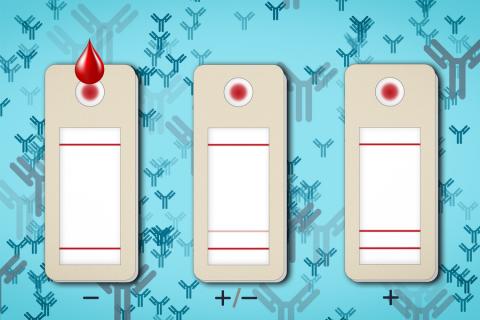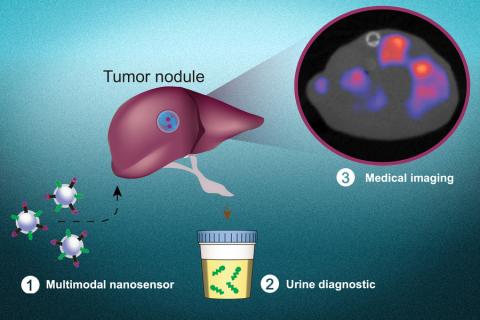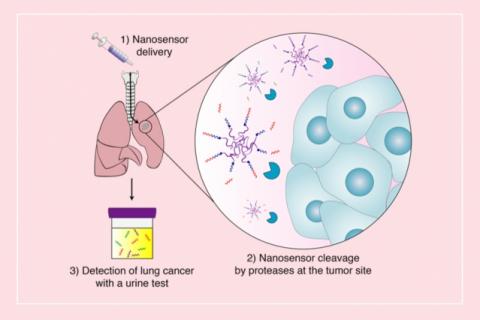The advance makes it easier to detect circulating tumor DNA in blood samples, which could enable earlier cancer diagnosis and help guide treatment.
Sangeeta Bhatia
Inhalable sensors could enable early lung cancer detection
The diagnostic, which requires only a simple urine test to read the results, could make lung cancer screening more accessible worldwide.
A simple paper test could offer early cancer diagnosis
The new diagnostic, which is based on analysis of urine samples, could also be designed to reveal whether a tumor has metastasized.
Nanosensors target enzymes to monitor and study cancer
By analyzing enzyme activity at the organism, tissue, and cellular scales, new sensors could provide new tools to clinicians and cancer researchers.
New test may predict Covid-19 immunity
The paper test measures the level of neutralizing antibodies in a blood sample and could help people decide what protections they should take against infection.
Nanoparticle sensor can distinguish between viral and bacterial pneumonia
Using this diagnostic, doctors could avoid prescribing antibiotics in cases where they won’t be effective.
A noninvasive test to detect cancer cells and pinpoint their location
Diagnostic nanoparticles could be used to monitor tumor recurrence after treatment or to perform routine cancer screenings.
Faster tracking of treatment responses
Biological sensors developed by MIT spinout Glympse Bio could help clinicians make decisions for individual patients.
Exhaled biomarkers can reveal lung disease
Specialized nanoparticles create a “breath signal” that could be used to diagnose pneumonia and other infectious or genetic diseases.
New sensors could offer early detection of lung tumors
Study shows that a simple urine test can reveal the presence of lung cancer in mice.



